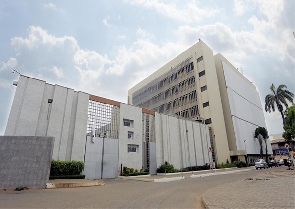A financial analyst, Dr Micheal Dawson has opined that the banking sector reforms undertaken by government and the Bank of Ghana was aimed at strengthening the local banks, making them more resilient to shocks.
He explained that the clean-up exercise was intended to save millions of depositors’ funds despite liquidity support offered to some banks at the time.
Dr. Dawson was responding to recent comments made by former president, John Dramani Mahama indicating the next NDC administration will restore the licences of banks that he believes were unjustly collapsed.
“I think clearly, most of the politicians do not understand the essence of the reforms that have been undertaken. I can tell you that, most of the local banks breached several banking regulations and had bad governance issues.
“…You had a situation where loans were given to family and friends without proper documentation and depositors funds were diverted to build businesses of shareholders which resulted in depositors not been able to access their funds some of the financial institutions,” he noted.
He continued that, “It is better to have fewer local banks with strong financial capacity, than having many weak local banks unable to drive economic development adding that the financial system at the time, was on the brink of total collapse and needed safeguarding”.
The financial analyst noted that government had to intervene in to save safeguard the investment of depositors and implement reforms aimed at strengthening the sector.
“The robustness of the banking sector is due to the financial sector reforms and the central bank indicated that the reason why most banks were able to withstand increased withdrawals and met depositors’ demand for cash in the lockdown period, was due to the fact that banks were solvent and well capitalised.
I will say that the resilience shown by the banking sector is due to the comprehensive financial sector reforms that took place before the Coronavirus pandemic. You can imagine what would have happened if the banking sector reforms wasn’t done. We would have woken up one day to see a collapse of the Ghanaian economy.
The measures taken safeguarded the investments of about 4.6 million depositors and there is now confidence in the sector after the exercise was crucial for stability in the financial sector”. Dr Dawson explained said.
Meanwhile, another financial analyst Joe Jackson, has also questioned how former president John Dramani Mahama will restore the operating licenses of banks which were collapsed under the clean-up exercise conducted by the Bank of Ghana.
He believes that the decision will somewhat be difficult due to the wave of challenges in the financial sector at the time which called for the Central Bank’s intervention to safeguard depositor’s funds.
He added that the decision by the Bank of Ghana remains justified despite some disagreement with the process at which some banks became insolvent.
“You have got to be clear that there were a lot of challenges in the financial sector, huge challenges, some of the institutions were in deep trouble such that there is arguably a legitimate reason for the central banks stepping in. You may disagree with the process but you cannot disagree with the premise that these institutions were in trouble,” he is quoted by 3news.com to have said.
Joe Jackson continued that, “The caveat is they were unjustifiably shut down. First of all, we have to wait and see who can claim legitimately that they unjustifiably shut down but the bigger problem is this, it is going to be some seven or eight years after the event, even if you win, how are you going to entangle this?"
“At best, maybe you will compensate the owners and the shareholders,” Joe Jackson said.
As part of its efforts to clean-up the banking sector, the Bank of Ghana examined the affairs of a number of banks and discovered a number of anomalies relating to its licensing, the sources of its capital, and related party transactions.
Upon its determination, some nine local banks, 23 savings and loans companies, 347 microfinance institutions, 39 finance houses and 53 fund management companies were collapsed during the exercise.
The central bank also determined that pursuant to sections 9 and 12 of Act 930, the majority shareholder of some banks did not meet the “fit and proper person” test.
MA
Business News of Friday, 19 May 2023
Source: www.ghanaweb.com

















